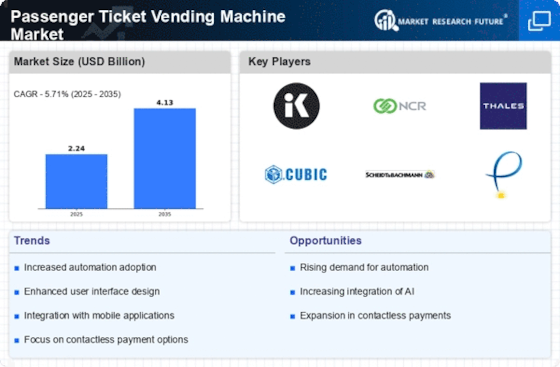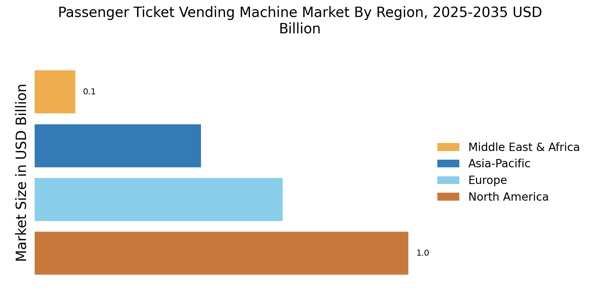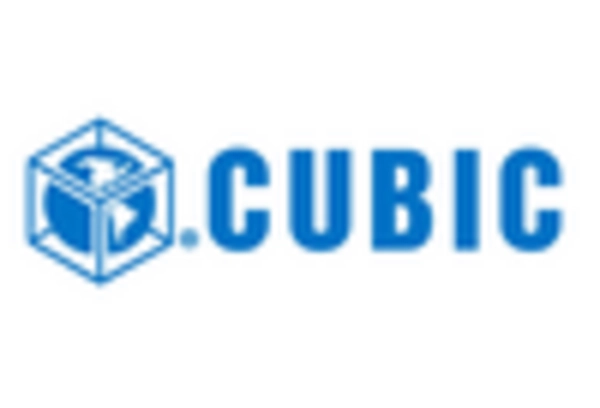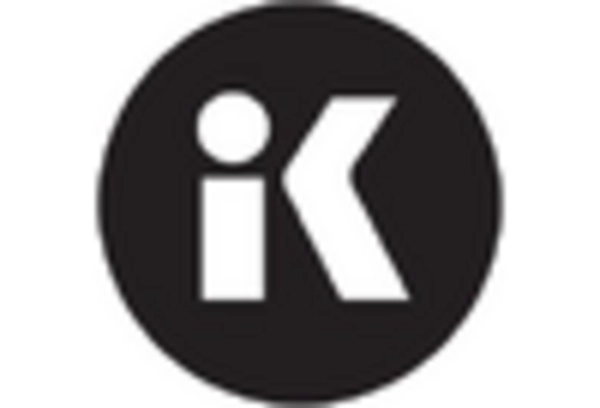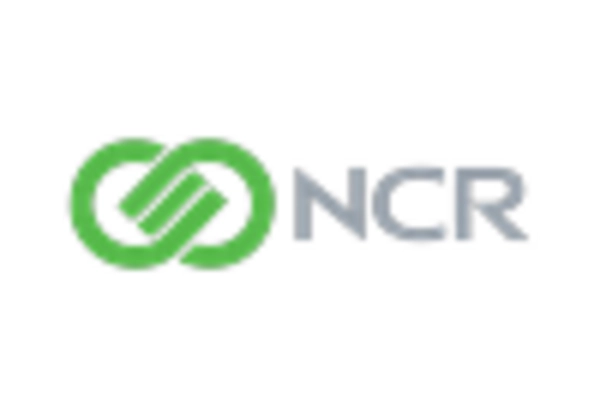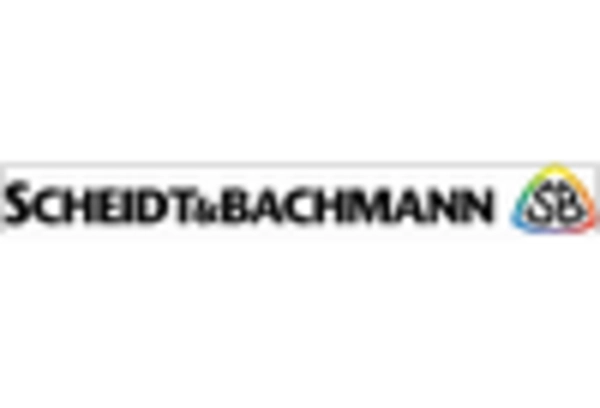Government Initiatives and Funding
Government initiatives aimed at improving public transportation infrastructure are significantly influencing the Passenger Ticket Vending Machine Market. Various governments are allocating funds to enhance public transport systems, which includes the installation of modern ticket vending machines. For instance, recent reports suggest that several countries are investing billions in upgrading their transport networks, which directly impacts the demand for advanced ticketing solutions. This financial support not only facilitates the deployment of new machines but also encourages innovation within the industry, potentially leading to a more robust market landscape.
Integration of Smart City Concepts
The concept of smart cities is increasingly influencing the Passenger Ticket Vending Machine Market. As urban planners and governments adopt smart technologies to enhance city living, the integration of intelligent ticketing solutions becomes essential. Smart ticket vending machines equipped with features such as real-time updates, user-friendly interfaces, and data collection capabilities are gaining traction. This integration not only improves operational efficiency but also enhances the overall commuter experience. Market analysis suggests that the adoption of smart city initiatives could lead to a 25% increase in the deployment of advanced ticket vending machines, thereby expanding the market significantly.
Increased Focus on Contactless Solutions
The Passenger Ticket Vending Machine Market is witnessing a notable shift towards contactless solutions, driven by consumer preferences for hygiene and convenience. The rise in demand for touchless payment options, such as mobile wallets and QR codes, is reshaping the ticket purchasing experience. Recent statistics indicate that contactless transactions have surged by over 40% in various regions, reflecting a significant consumer shift. This trend is likely to continue, as more passengers seek efficient and safe ways to purchase tickets, thereby propelling the growth of the Passenger Ticket Vending Machine Market.
Growing Urbanization and Public Transport Demand
Urbanization is a driving force behind the expansion of the Passenger Ticket Vending Machine Market. As more individuals migrate to urban areas, the demand for efficient public transportation systems increases. This trend necessitates the installation of more ticket vending machines to accommodate the rising number of commuters. Data indicates that urban areas are projected to see a 50% increase in public transport usage over the next decade. Consequently, the need for accessible and user-friendly ticketing solutions becomes paramount, positioning the Passenger Ticket Vending Machine Market for substantial growth.
Technological Advancements in Ticketing Solutions
The Passenger Ticket Vending Machine Market is experiencing a surge in technological advancements that enhance the efficiency and functionality of ticket vending machines. Innovations such as contactless payment systems, mobile app integration, and real-time data analytics are becoming increasingly prevalent. These technologies not only streamline the purchasing process but also improve user satisfaction. According to recent data, the integration of advanced payment systems has led to a 30% increase in transaction speed, which is crucial for high-traffic areas. As these technologies evolve, they are likely to attract more users, thereby expanding the market's reach and potential revenue streams.


